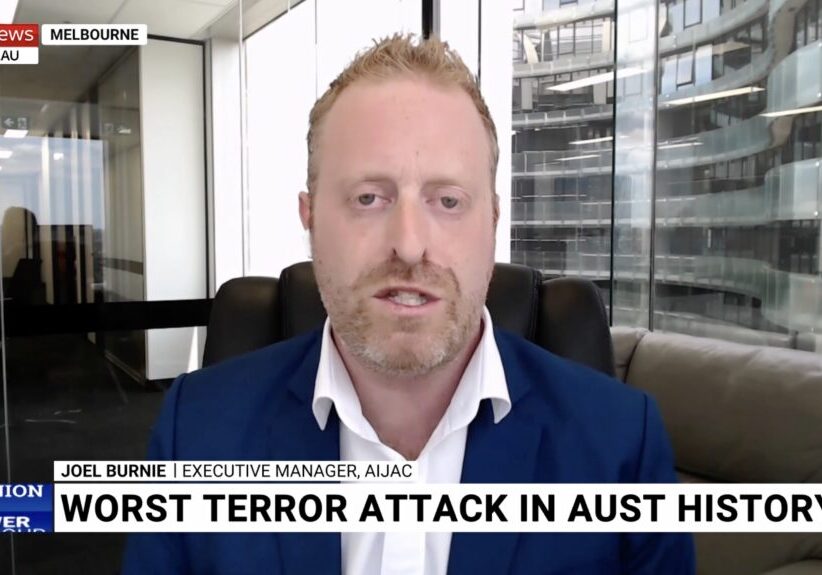Australia/Israel Review
Editorial: A Reminder from Boston
Apr 29, 2013 | Colin Rubenstein
Colin Rubenstein
The detonation of two potent bombs at the Boston Marathon on April 15, killing three and injuring 282, demonstrated that the “age” of Islamist terrorism against Western civilian targets – launched by the Sept. 11, 2001 attacks – is not over. The terrorist threat is neither a mere “irritant” nor a thing of the past.
The first step to combating terrorism is to accurately identify the motivations behind attacks. Therefore, in the immediate aftermath of Boston, when little was known, blind speculation about the perpetrator or motives was indeed counterproductive.
However, this changed once overwhelming evidence identified ethnically Chechen brothers Tamerlan and Dzhokhar Tsarnaev as the perpetrators, and indicated strongly that lead plotter Tamerlan, at least, had become a disciple of radical Islamist ideology. Reports that the FBI had once questioned Tamerlan and that police are now reopening a previously unsolved triple murder case where the victims were his roommate and two Jewish friends – a murder carried out on the anniversary of Sept. 11 – are also suggestive.
What is now counterproductive is to decline to draw the necessary conclusions that this was yet another part of a widespread campaign of terror motivated by the spread of transnational, violent, radical Islamist ideology.
Today, thanks largely to the Internet, radical Islamist ideology can be propagated and cultivated not only in Islamic countries, but also among Muslims or converts to Islam born into or living for extended periods in Western societies – even without any direct recruitment by operatives from organised groups like al-Qaeda (although a face-to-face “radicaliser” is usually involved).
The fact that a significant influence on Tamerlan Tsarnaev appears to have been Australian cleric Sheikh Feiz Mohammad only underlines the global reach of the radical Islamist movement. It also demonstrates that Australia continues to have an important role to play in containing and countering this global problem, despite the success, to date, of Australian authorities in preventing anything similar happening within this country.
Meanwhile, some are now arguing that terrorism should be thought of as simply a normal hazard of modern life, akin to traffic accidents or bee stings. This is based on a logical fallacy that assumes all premature deaths have the same impact.
A terror attack is a message to a civilian population that they are not safe in public places. The impact cannot be quantified by simply comparing risks of death from terror with other hazards. It is the symbolism of Americans or Australians or whatever target group being killed in a way that signals an intent to kill as many as possible anywhere and everywhere that makes terror effective.
Moreover, terrorism has a snowball effect. Successful attacks tend to spark others to sign on to the cause or stage copycat attacks. Even more importantly, terror groups, where they can, need to top their last act to maintain their momentum, and generate similar levels of publicity. Escalating terror can lead to significant economic and social costs to society, as security concerns disrupt normal life and trust in social institutions is damaged or destroyed. And escalation could lead to truly horrific outcomes involving attacks using Weapons of Mass Destruction.
Terrorism thus involves costs way beyond the direct damage caused. For instance, terrorism has required airport security measures making international air travel much more inconvenient and costing tens of billions of dollars. But the alternative would be much worse – the frequent downing of airliners and the murder of all their passengers could effectively shut down much of international commerce.
Nor is it true that responding to terrorism only breeds more terror as a counter-reaction, as some insist.
While it is certainly true that, for example, the killing of Osama bin Laden in 2011 did not mean the end of al-Qaeda, it is beyond dispute that the capabilities of the central al-Qaeda organisation are far weaker today than they were in the aftermath of Sept. 11, 2001.The threat has now shifted mainly to a more diffuse and dispersed terrorism inspired rather than directed by al-Qaeda.
Further, there is no evidence to support the notion that easing off on measures against Islamist jihadists will lead terrorists to reciprocate. Rather, every past hint of such a relaxation has been viewed by extremists as a “victory” to be used as a recruitment tool.
Taking a stand against Islamist terrorism remains a moral duty and an overwhelming national interest, but it requires ongoing and focussed vigilance over the longer haul.
It involves not turning a blind eye to state-sponsored terrorism – there is no more egregious case of this today than that of Iran – and taking every necessary step to isolate and pressure such states. It also means preventing the development of new terror safe havens – in Mali or Yemen or Syria, for instance.
It requires careful processing of immigrants, overseas visitors and, yes, asylum-seekers, to prevent the exploitation of a compassionate system by those who would plot or recruit for terror attacks. Such steps are actually in the interests of newcomers themselves, who do not deserve to live under a cloud of suspicion once in the country.
And vigilance means significantly assisting mainstream Muslims in their responsibility to, not only disassociate themselves and criticise extremism from afar, but actually confront and root out the extremism within their communities and to develop a “counter-narrative”. At the end of the day, it is Muslims who are best-placed to lead the all-important efforts to combat intellectually the ideas of the Islamist extremists who claim to be acting in the name of “true Islam”, and thus finally once and for all unravel this threat.
For just as communism ceased to be a threat only when the communist ideology lost its appeal, it is only when radical Islamist ideology is marginalised and discredited globally that the conflict with Islamist extremist terrorism will finally subside.
Tags: Islamic Extremism






